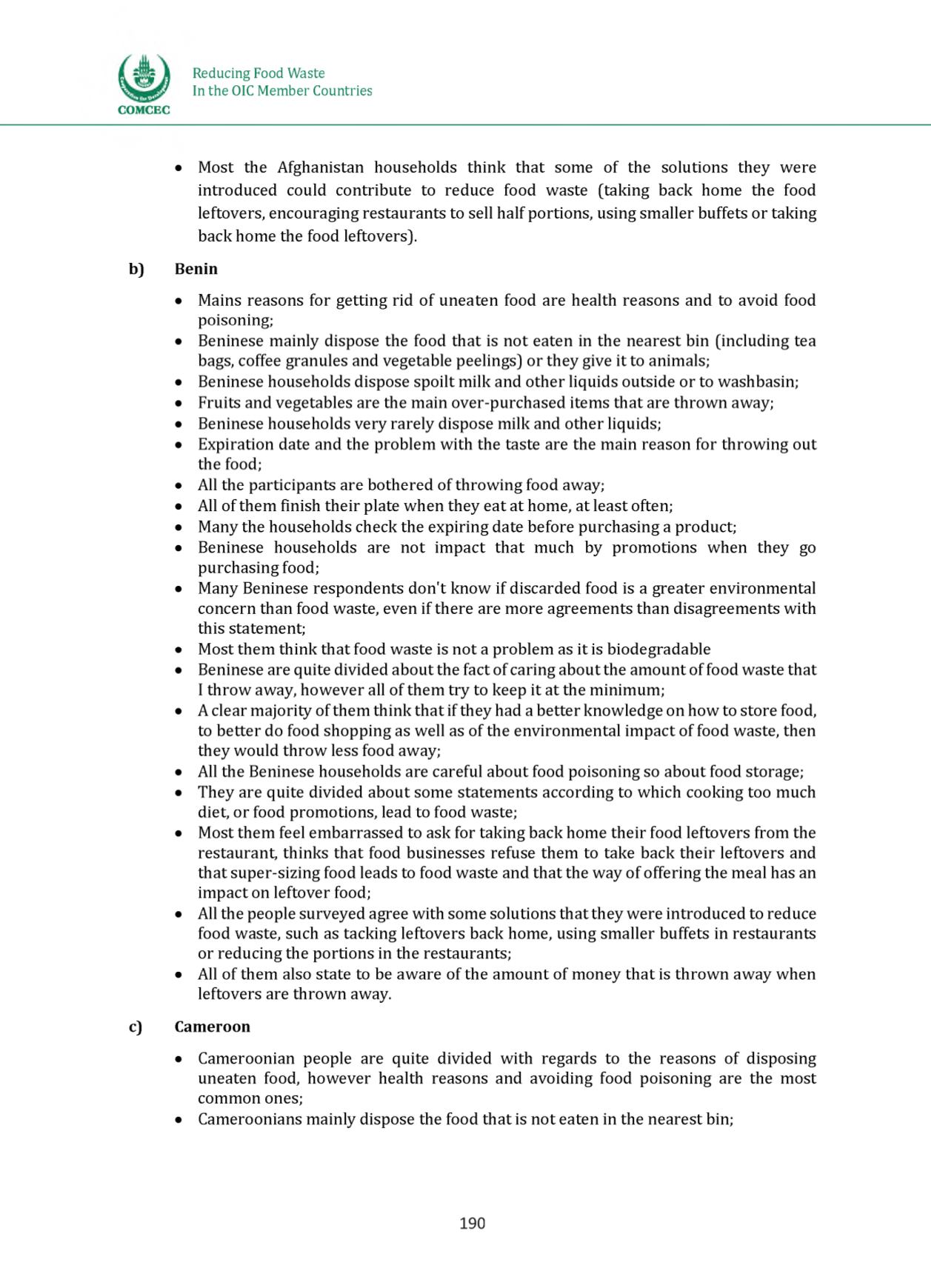

Reducing Food Waste
In the OIC Member Countries
COMCEC
• Most the Afghanistan households th ink tha t some of the solutions they were
introduced could contribute to reduce food waste (tak ing back home the food
leftovers, encouraging restaurants to sell ha lf portions, using smaller buffets or taking
back home the food leftovers).
b)
Benin
• Mains reasons for getting rid o f uneaten food are health reasons and to avoid food
poisoning;
• Beninese m a in ly dispose the food tha t is n o t eaten in the nearest b in (inc lud ing tea
bags, coffee granules and vegetable peelings) or they give it to animals;
• Beninese households dispose spoilt m ilk and other liquids outside or to washbasin;
• Fruits and vegetables are the m a in over-purchased items tha t are throw n away;
• Beninese households very rarely dispose m ilk and other liquids;
• Expiration date and the p rob lem w ith the taste are the m a in reason for throw ing out
the food;
• All the participants are bothered of throw ing food away;
• All of them finish their plate w hen they eat at home, at least often;
• Many the households check the expiring date before purchasing a product;
• Beninese households are n o t im pac t th a t much by prom otions when they go
purchasing food;
• Many Beninese respondents don 't know if discarded food is a greater environmental
concern than food waste, even if there are more agreements than disagreements w ith
this statement;
• Most them th ink tha t food waste is n o t a prob lem as it is biodegradable
• Beninese are quite divided abou t the fact of caring abou t the am oun t of food waste tha t
I th row away, however all of them try to keep it at the m in im um ;
• A clear majority of them th ink th a t if they had a better know ledge on how to store food,
to better do food shopp ing as well as of the environmental im pac t of food waste, then
they w ou ld th row less food away;
• All the Beninese households are careful abou t food poisoning so abou t food storage;
• They are quite divided abou t some statements according to which cooking too much
diet, or food promotions, lead to food waste;
• Most them feel embarrassed to ask for tak ing back home their food leftovers from the
restaurant, thinks th a t food businesses refuse them to take back their leftovers and
tha t super-sizing food leads to food waste and tha t the way o f offering the meal has an
im pac t on leftover food;
• All the people surveyed agree w ith some solutions tha t they were in troduced to reduce
food waste, such as tacking leftovers back home, using smaller buffets in restaurants
or reducing the portions in the restaurants;
• All of them also state to be aware of the am o u n t of money tha t is th row n away when
leftovers are throw n away.
c)
Cameroon
• Cameroonian people are quite divided w ith regards to the reasons of disposing
uneaten food, however health reasons and avoiding food poisoning are the most
comm on ones;
• Cameroonians m a in ly dispose the food tha t is n o t eaten in the nearest bin;
190
















